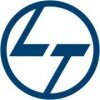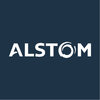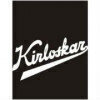Filter interviews by
Kilburn Engineering EHS Officer Interview Questions and Answers
Kilburn Engineering EHS Officer Interview Experiences
1 interview found
I applied via Approached by Company and was interviewed in Nov 2024. There was 1 interview round.
(2 Questions)
- Q1. About PPEs, Crane Safety, Height work, Machine Safety
- Q2. FA and MFR
Interview Preparation Tips
Top trending discussions






Interview questions from similar companies

I applied via Walk-in and was interviewed in Apr 2023. There was 1 interview round.
(1 Question)
- Q1. Family background, technical realated to quality assurance.

I applied via Recruitment Consultant and was interviewed in Jul 2021. There were 3 interview rounds.
Interview Questionnaire
8 Questions
- Q1. Whats GD&T?
- Ans.
GD&T stands for Geometric Dimensioning and Tolerancing.
GD&T is a system used to define and communicate engineering tolerances.
It provides a standardized language for specifying the form, size, orientation, and location of features on a part.
GD&T uses symbols, feature control frames, and datums to convey the desired tolerances and requirements.
It ensures that parts are manufactured and inspected consistently, leading to...
- Q2. its importance in mechanical engineering
- Ans.
QA QC is crucial in ensuring the quality and reliability of mechanical engineering products and processes.
QA QC helps identify and prevent defects in mechanical engineering products and processes.
It ensures compliance with industry standards and regulations.
It helps improve efficiency and reduce costs by identifying areas for improvement.
Examples include testing and inspecting mechanical components, monitoring producti...
- Q3. What are different measuring instruments their least count? how to use, hands-on experience on instruments
- Ans.
Different measuring instruments and their least count, along with hands-on experience.
Vernier caliper - 0.02 mm
Micrometer screw gauge - 0.01 mm
Dial gauge - 0.01 mm
Height gauge - 0.02 mm
Thread pitch gauge - 0.01 mm
Using instruments requires proper calibration and handling
Hands-on experience can be gained through practice and training
- Q4. What are the principles of 5s & the importance of quality
- Ans.
5S principles are Sort, Set in order, Shine, Standardize, and Sustain. Quality is important to ensure customer satisfaction and business success.
Sort - eliminate unnecessary items to improve efficiency
Set in order - organize items for easy access and productivity
Shine - maintain cleanliness and prevent defects
Standardize - establish consistent processes for quality control
Sustain - continuously improve and maintain the...
- Q5. Types of welding
- Ans.
There are several types of welding, including MIG, TIG, Stick, and Flux-Cored welding.
MIG (Metal Inert Gas) welding uses a wire electrode and a shielding gas to join two pieces of metal together.
TIG (Tungsten Inert Gas) welding uses a tungsten electrode and a shielding gas to create a precise and clean weld.
Stick welding (also known as Shielded Metal Arc Welding) uses a consumable electrode coated in flux to create a s...
- Q6. Why is spatter formed while welding
- Ans.
Spatter is formed while welding due to the expulsion of molten metal from the weld pool.
Spatter is caused by the high temperature of the welding process.
It can be reduced by adjusting the welding parameters such as voltage, current, and wire feed speed.
Using a welding gun with a shorter nozzle can also help reduce spatter.
Spatter can cause defects in the weld and may need to be removed before finishing.
It can also be a
- Q7. What type of welding defects are seen? measures for reducing welding defects
- Ans.
Welding defects include porosity, cracks, incomplete fusion, and distortion. Measures to reduce defects include proper training, inspection, and maintenance.
Porosity: caused by gas entrapment, can be reduced by proper shielding gas and electrode selection
Cracks: caused by high stress or improper cooling, can be reduced by preheating and controlling cooling rate
Incomplete fusion: caused by insufficient heat or improper ...
- Q8. Types of fit
- Ans.
Types of fit include clearance fit, interference fit, and transition fit.
Clearance fit: parts have a gap between them
Interference fit: parts are pressed or forced together
Transition fit: parts have both clearance and interference
Examples: piston and cylinder, gears and shafts
Interview Preparation Tips
Skills evaluated in this interview

I was interviewed before Jul 2016.
Interview Questionnaire
2 Questions
- Q1. Technical Questions
- Q2. Salary Negotiation
Interview Preparation Tips
Duration: 1 hour
Total Questions: 50
Kilburn Engineering Interview FAQs
Tell us how to improve this page.
Kilburn Engineering Interviews By Designations
- Kilburn Engineering Autocad Mechanical Draughtsman Interview Questions
- Kilburn Engineering Data Entry Operator Interview Questions
- Kilburn Engineering Department Manager Interview Questions
- Kilburn Engineering EHS Officer Interview Questions
- Kilburn Engineering Manager – Electrical Interview Questions
- Kilburn Engineering QA QC Engineer Interview Questions
Interview Questions for Popular Designations
- Senior EHS Officer Interview Questions
- Assistant Manager - EHS Interview Questions
- Electrical Engineer Interview Questions
- Production Officer Interview Questions
- QA QC Engineer Interview Questions
- Deputy Manager EHS Interview Questions
- Senior Executive - EHS Interview Questions
- EHS Executive Interview Questions
- Show more
Interview Questions from Similar Companies
|
Production Engineer
18
salaries
| ₹2 L/yr - ₹6 L/yr |
|
Project Engineer
14
salaries
| ₹3.5 L/yr - ₹7 L/yr |
|
Senior Production Engineer
12
salaries
| ₹4 L/yr - ₹6.7 L/yr |
|
Design Engineer
12
salaries
| ₹2 L/yr - ₹9.5 L/yr |
|
Estimation Engineer
9
salaries
| ₹1.5 L/yr - ₹7 L/yr |

Thermax Limited

Isgec Heavy Engineering

Larsen & Toubro Limited

BHEL
Calculate your in-hand salary
- Home >
- Interviews >
- Kilburn Engineering Interview Questions >
- Kilburn Engineering EHS Officer Interview Questions






